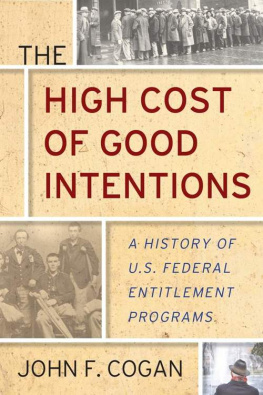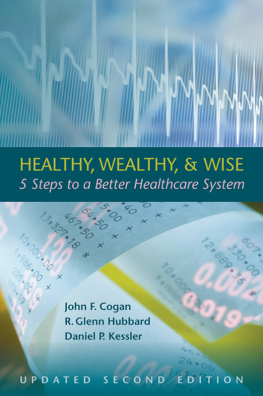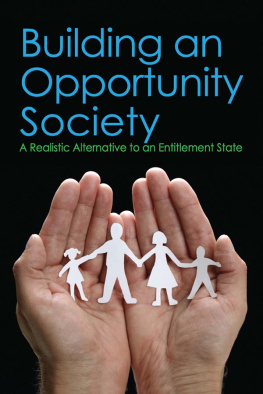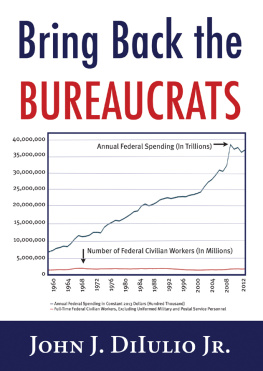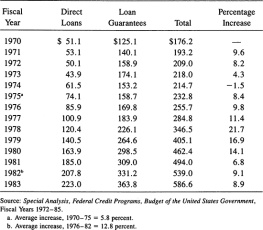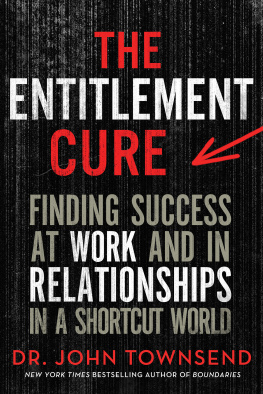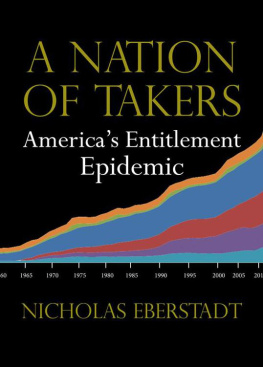Stanford University Press
Stanford, California
2017 by the Board of Trustees of the Leland Stanford Junior University.
All rights reserved.
No part of this book may be reproduced or transmitted in any form or by any means, electronic or mechanical, including photocopying and recording, or in any information storage or retrieval system without the prior written permission of Stanford University Press.
Printed in the United States of America on acid-free, archival-quality paper
Library of Congress Cataloging-in-Publication Data
Names: Cogan, John F., author.
Title: The high cost of good intentions : a history of U.S. federal entitlement programs / John F. Cogan.
Description: Stanford, California : Stanford University Press, 2017. | Includes bibliographical references and index.
Identifiers: LCCN 2017009793 (print) | LCCN 2017022252 (ebook) | ISBN 9781503604254 | ISBN 9781503603547 (cloth : alk. paper)
Subjects: LCSH: Entitlement spendingUnited StatesHistory. | Public welfareUnited StatesHistory. | Social securityUnited StatesHistory.
Classification: LCC HJ7543 (ebook) | LCC HJ7543 .C64 2017 (print) | DDC 361.60973dc23
LC record available at https://lccn.loc.gov/2017009793
THE HIGH COST OF GOOD INTENTIONS
A History of U.S. Federal Entitlement Programs
John F. Cogan
Stanford University Press
Stanford, California
ADVANCE PRAISE FOR THE HIGH COST OF GOOD INTENTIONS
John Cogan lays bare the historic roots of the most important economic problem confronting American policymakers today: our runaway entitlements juggernaut. In the past half-century it has consumed ten percentage points of GDP, threatening productivity and economic growth. Cogan does not profess to have found an easy, short-term solution to runaway entitlement growth, but his masterful historical perspective does suggest what must be done sooner, rather than later. This is an important and splendid book.
Alan Greenspan, former Chairman of the Federal Reserve of the United States (19872006), and former Chairman of the National Commission on Social Security Reform (1983)
John Cogan gives us a blockbuster treatise on the history of federal entitlement programs. Part education, part cautionary tale, this richly researched book is above all a fascinating and insightful saga on how and why federal entitlements grow. A valuable guide to the future.
George P. Shultz, distinguished fellow, Hoover Institution, Stanford University; former U.S. Secretary of State, Treasury, and Labor; and former Director of the U.S. Office of Management and Budget
John Cogans book is an extensively researched and unbiased examination of how well-intentioned federal entitlement programs have evolved to become our countrys number one fiscal challenge. His timely historical work deepens our understanding of how entitlement programs have grown into a costly burden that we ultimately cannot afford. Cogan makes clear that slowing the growth of entitlements is essential and that meeting this challenge is more about simple arithmetic than ideology. This book should be read by anyone interested in addressing our nations fiscal and economic future, regardless of their political persuasion.
Sam Nunn, former U.S. Senator
Finally someone has written a comprehensive history of Americas efforts to help worthy groups of Americans: the elderly, the veteran, the less fortunate and the very young. It is a history of ever more generous help to ever larger groups of people. You can agree or disagree with the merit of all these programs, but the cost is clear, and John Cogan shows why that cost has been either ignored or passed to future generations. The first step in fixing our entitlements is knowing their history. Cogan has now given us that history.
Bill Bradley, former U.S. Senator
John Cogan thoroughly reviews one of the greatest challenges facing our country: the unsustainable growth of entitlement spending. He provides a comprehensive view of the issue by looking at the history, the evolution, and the daunting numbers. Cogan brings his extraordinary knowledge and background in economics, fiscal policy, health care, and Social Security to bear in this book to give the reader a full understanding of the roots and the extent of this growing problem that must be tackled.
Paul D. Ryan, Speaker of the U.S. House of Representatives
For Thomas Paul and Nicholas Lee
Acknowledgments
I OWE AN ESPECIALLY DEEP DEBT OF GRATITUDE TO two friends and colleagues, David Koitz and David Brady. The two Davids have been invaluable colleagues and active contributors to the development of this work from the time the ideas presented here were merely a collection of hazy, unconnected thoughts to the manuscripts completion. I have had the good fortune to be able to draw on David Koitzs encyclopedic knowledge of federal programs, his keen understanding of Congress, and his remarkable understanding of the dynamics of entitlement legislation that he gained from a lifetime of public service. I have likewise benefited from David Bradys deep knowledge of Congress, how it works (and sometimes doesnt), and the influence of politics on policymaking. He has been a source of continuing encouragement.
I have benefited greatly from the expert research assistance of Daniel Heil. From collecting and collating statistical data and performing computer runs on large complex data sets, to unearthing obscure nineteenth-century government documents, to providing substantive comments on various drafts. Daniel diligently contributed to every aspect of this manuscript. Tom Church, Chris Castellanos, Sarah Jarman, and Griffin Weir also provided expert research assistance that greatly improved the quality of the manuscript. I thank Maria Sanchez for her assistance in gathering data and library work and Barbara Egbert for editorial assistance.
I am indebted to Michael Boskin, Barry Clendenin, Tim Muris, Charles Palm, John Taylor, Tom Saving, and George Shultz for providing valuable comments on earlier versions of the entire manuscript; to Joe Antos, Scott Atlas, and Daniel Kessler for contributions to sections on health care entitlements; to Chuck Blahous for comments on Social Security issues; to Richard Epstein and Sai Prakash for guidance on legal issues; and to Barry Anderson for help on budget process matters.
I owe a unique debt to my long-time friend and former Hoover Institution director John Raisian for his support and encouragement of this work. I thank John and director Tom Gilligan for maintaining Hoovers unique research environment that has allowed me the intellectual freedom and the time to pursue my research
Last and certainly not least, I thank my wife, Dupi, for putting up with me throughout the duration of my research. Dupi has been a true partner on this project in every sense of the word. She has discussed and debated many of my ideas, edited the manuscript, and has been an invaluable source of support and encouragement. It is fair to say that without Dupi, this manuscript would not have been possible.
Contents
Introduction
Many of these programs may have come from a good heart, but not all have come from a clear headand the costs have been staggering. We can be compassionate about human needs without being complacent about budget extravagance.
Ronald Reagan, 1981
THROUGHOUT U.S. HISTORY, FEDERAL ENTITLEMENT programs have sprung from the noble intention of providing assistance to people who are destitute through no fault of their own. Veterans entitlements, dating back to the Revolutionary War, were created to provide assistance to soldiers disabled by injuries and illness suffered during wartime service. The New Deal and Great Society social insurance and welfare entitlements were created with the lofty goal of providing a safety net of assistance to the elderly, single mothers, the disabled, the unemployed, and people suffering from ill health. These programs kept disabled veterans of nineteenth-century wars out of almshouses, enabled millions of senior citizens to live out their retirement years without poverty, and provided needed assistance to countless Americans who faced economic destitution.
Next page
